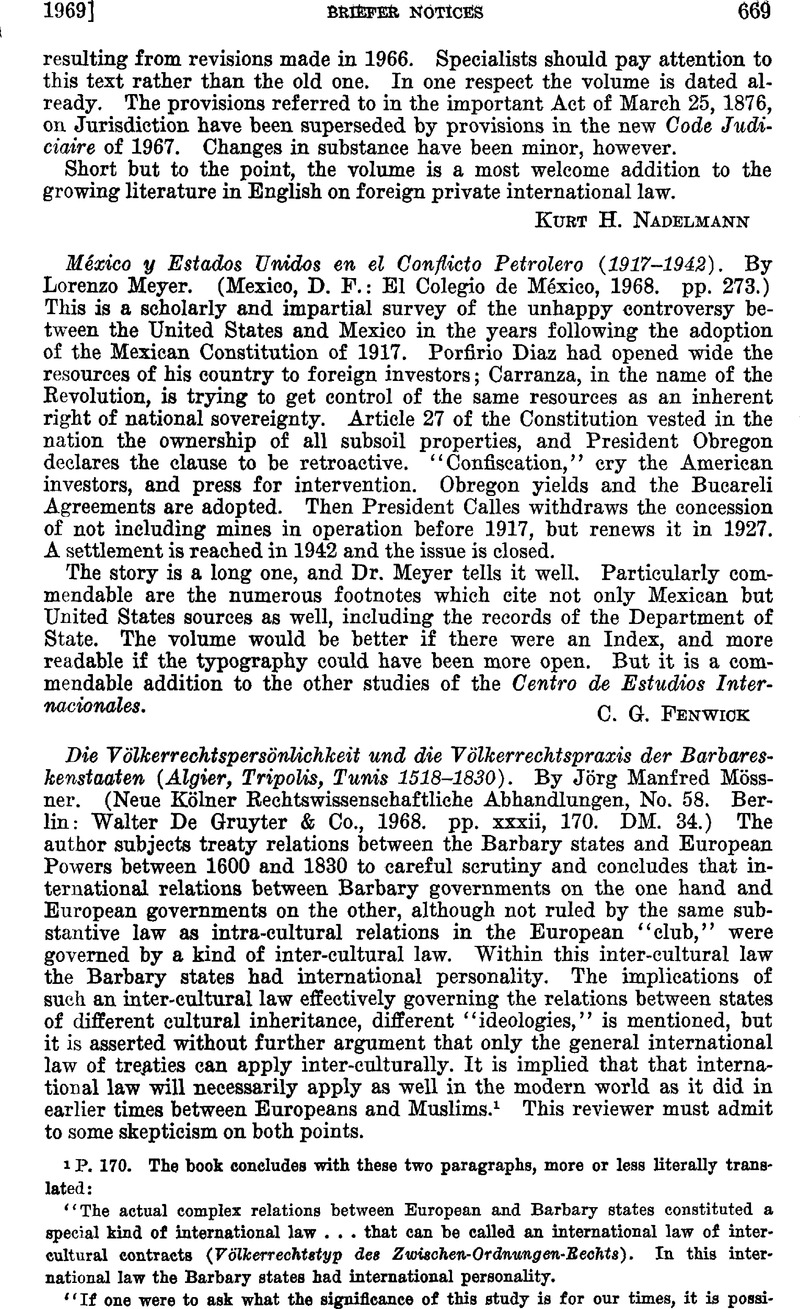No CrossRef data available.
Article contents
Die Völkerrechtspersönlichkeit und die Völkerrechtspraxis der Barbareskenstaaten. (Algier, Tripolis, Tunis 1518-1830)
Published online by Cambridge University Press: 28 March 2017
Abstract

- Type
- Briefer Notices
- Information
- Copyright
- Copyright © The American Society of International Law 1969
References
1 P. 170. The book concludes with these two paragraphs, more or less literally translated:
“The actual complex relations between European and Barbary states constituted a special kind of international law . . . that can be called an international law of intercultural contracts (Völherrechtstyp des Zwischen-Ordnungen-Sechts). In this international law the Barbary states had international personality.
“If one were to ask what the significance of this study is for our times, it is possible to respond that in the interface of two international systems based on ideology international law retains its force only within the framework of treaties. Those treaties presuppose some minimal common values. The subjects of this law are determined solely by recognition.”




